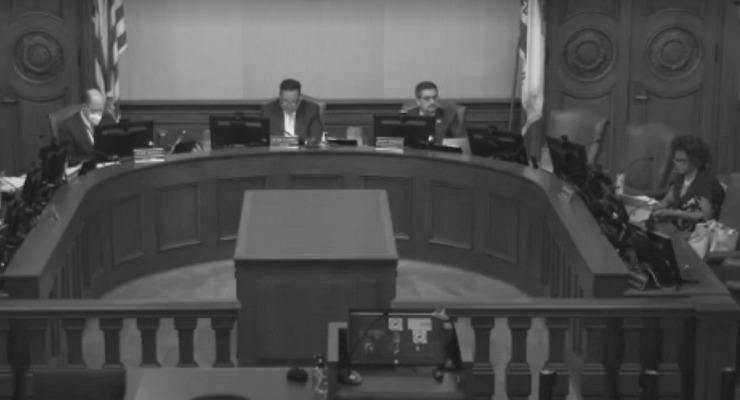 The pundit class has decided that Democrats are facing a lost cause in holding onto the House of Representatives in the 2022 Midterms. They couldn’t be more wrong. While the party certainly faces challenges, none are insurmountable, and the Democrats even have some advantages. Let’s look at some of the myths around the “lost cause” theory:
The pundit class has decided that Democrats are facing a lost cause in holding onto the House of Representatives in the 2022 Midterms. They couldn’t be more wrong. While the party certainly faces challenges, none are insurmountable, and the Democrats even have some advantages. Let’s look at some of the myths around the “lost cause” theory:
-
The incumbent President’s party loses seats in midterm elections.
While this is historically accurate, there are several factors that make the 2022 elections unusual. For one thing, the Democrats actually lost 13 seats in the last presidential election, which is itself an historical anomaly. In the 2008 presidential election, the Democrats gained 21 seats and in the 2012 election they gained 27 seats. The good news for 2022 – Democrats have fewer seats to lose. Plus, the seats they need to recapture in the House were seats that they held before 2020.
-
Biden’s low approval ratings spell disaster for Democrats.
Not necessarily true. Although Trump’s low ratings in 2018 meant a loss of 41 seats to Republicans, this was due largely to the flood of suburban voters who were distressed by Trump’s presidency and wanted to send a message. These were the same voters who were not enthusiastic about Trump in 2016, but disliked Hillary Clinton more.
The 2022 midterms are different for several reasons. First, most voters regard Biden as a one-term president, so there is less incentive to make the election a referendum on the president. Secondly, voters in 2022 are more polarized and are likely to vote strictly along party/ideological lines. Since the country is fairly evenly divided along partisan lines, the midterms will be decided by turnout.
-
Partisan gerrymandering and voting restrictions favor Republicans.
Not true. Neither gerrymandering nor voting restrictions appear to favor either party in the (very few) battleground House districts. While some states have been gerrymandered to favor Republicans, others have favored Democrats. In terms of the partisan balance of House seats, the effect has been minimal. The same may be said for voting rights. While voting restrictions in red states impact minorities, because of gerrymandering there are few if any House districts where the restrictions could determine the outcome of an election.
-
There are many House districts that are vulnerable to Republican takeover.
Also not true. According to the Cook political report, there are only 15 House seats that are considered true toss-ups – 9 held by Democrats and 6 held by Republicans. In addition, there are 4 Democratic seats that now lean Republican and 3 Republican seats that lean Democrat. Even if Democrats lose 9 of the tossups and Republicans net one in the “lean” column, then the Republicans net gain is only 4 seats, which is not enough to retake the House. Since the other 413 seats are considered at least fairly safe, it leaves a narrow playing field for both parties. Which makes turnout in the 15 toss-up districts even more crucial to control of the House.
-
The pandemic and rising inflation spell doom for the party in power – Democrats.
Possibly true. If the pandemic continues to rage, along with inflation, it will certainly be tough for Democrats to hold onto the House. However, if the pandemic – and the controversies surrounding it – subside in the next few months, then other issues will take center stage. If inflation slows down and the economy continues to grow, then voters will also focus on other issues. (Keep an eye on the consumer sentiment index).
-
Turnout will be key and the enthusiasm gap favors Republicans.
Partly true. Turnout certainly will be key to the election, especially in the toss-up districts which will determine control of the House. But while the national enthusiasm gap favors Republicans, this may not be true in the toss-up districts, where local issues may be more important than national sentiment. In the three California toss-up districts held by Republicans, Democrats hold a 3-5 point advantage in registration, which could dilute any enthusiasm gap. And in each of those districts, the Republican incumbents have expressed support for Trump’s actions, either by voting against impeaching him after January 6th or refusing to denounce the “stolen election” lie. Their support for Trump post-January 6 will undoubtedly stoke enthusiasm from grassroots Democrats
-
The conclusion – don’t believe the “lost cause” theories.
Hoyt Hilsman is Chair of the United Democratic Headquarters, a coalition of Democratic clubs in Pasadena, and is a former trustee of Pasadena City College.



















One thought on “Guest Opinion | Hoyt Hillsman: Not So Fast! Why Democrats Should Not Concede the House”
Thanks, Hoyt. I don’t feel as down as I did before. I read your items in the Phoenix regularly and try to help Act and the IDH when I can, altho I can’t go there to volunteer any more at my age (950) But I follow the Dems where I can and send $ when I can.
All the best, Edie